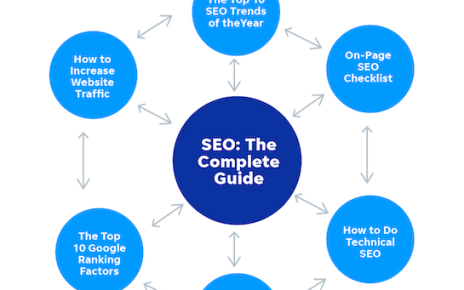Introduction: In the world of search engine optimization (SEO), keywords play a pivotal role in driving organic traffic to websites. Understanding the importance of keywords and effectively implementing them in your SEO strategy can significantly impact your website’s visibility and overall success. In this article, we will explore the fundamental role of keywords in SEO and how they contribute to improving search engine rankings and attracting relevant visitors.
- Defining Keywords: Keywords are words or phrases that users enter into search engines when looking for specific information, products, or services. These keywords act as a bridge between user queries and the content on your website. By strategically targeting and optimizing your website for relevant keywords, you increase the chances of appearing in search engine results pages (SERPs) when users search for those particular terms.
- Organic Traffic and Visibility: Keywords are the foundation of organic search traffic. When search engines crawl and index websites, they analyze the relevance and authority of the content based on the presence and optimization of keywords. By incorporating keywords into your website’s content, meta tags, headings, and URLs, you signal to search engines that your site is relevant to specific queries, increasing the likelihood of appearing in relevant search results. The better your keyword optimization, the higher your website’s visibility, resulting in increased organic traffic.
- Targeting User Intent: Effective keyword research allows you to understand the intent behind users’ searches. By analyzing popular search queries related to your industry, you can identify the specific needs, problems, or desires that users are trying to fulfill. This knowledge enables you to create content that aligns with user intent, providing valuable information, solutions, or products that users are actively seeking. When your website fulfills user intent, search engines are more likely to rank it higher in relevant search results, attracting qualified traffic.
- Competitive Advantage: Keywords also help you gain a competitive advantage by identifying untapped opportunities or areas where your competitors are weak. Through comprehensive keyword research, you can discover high-volume, low-competition keywords that are relevant to your business. Targeting these niche keywords allows you to rank higher with less effort, capturing targeted traffic and potentially converting them into customers. Furthermore, analyzing your competitors’ keyword strategies can provide valuable insights into their SEO tactics, enabling you to refine and improve your own approach.
- Content Optimization: Keywords influence content creation and optimization. By strategically incorporating relevant keywords into your website’s content, you can improve its overall quality and relevance. However, it’s crucial to maintain a natural and user-friendly approach. Search engines prioritize user experience, and excessive keyword stuffing or irrelevant use of keywords can lead to penalties. Aim to create high-quality, informative, and engaging content that integrates keywords seamlessly and naturally.
- Evolving Nature of Keywords: Keyword research and optimization are not static processes. As user behavior and search trends evolve, so should your keyword strategy. Monitoring keyword performance and staying updated with the latest industry developments can help you identify new keyword opportunities and adapt your content to meet changing user needs. Regularly reviewing and refining your keyword strategy ensures that you stay competitive and maintain a strong online presence.
Conclusion: Keywords are the backbone of SEO, connecting users with relevant content and driving organic traffic to your website. By understanding user intent, conducting thorough keyword research, and optimizing your website’s content accordingly, you can improve your search engine rankings, attract targeted visitors, and gain a competitive advantage. Stay adaptable, keep pace with evolving trends, and ensure your keyword strategy aligns with your audience’s needs to maximize the impact of keywords on your SEO efforts.





